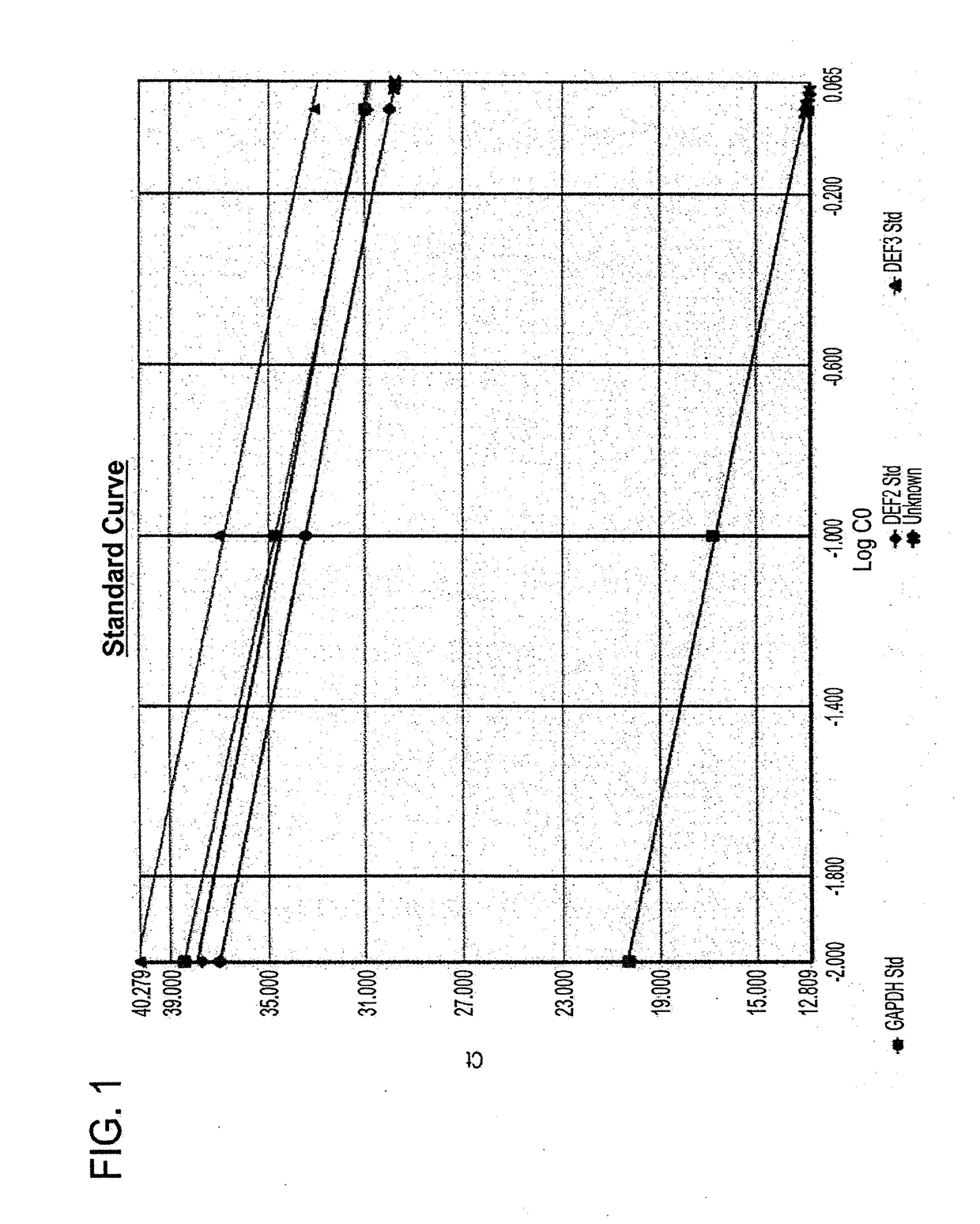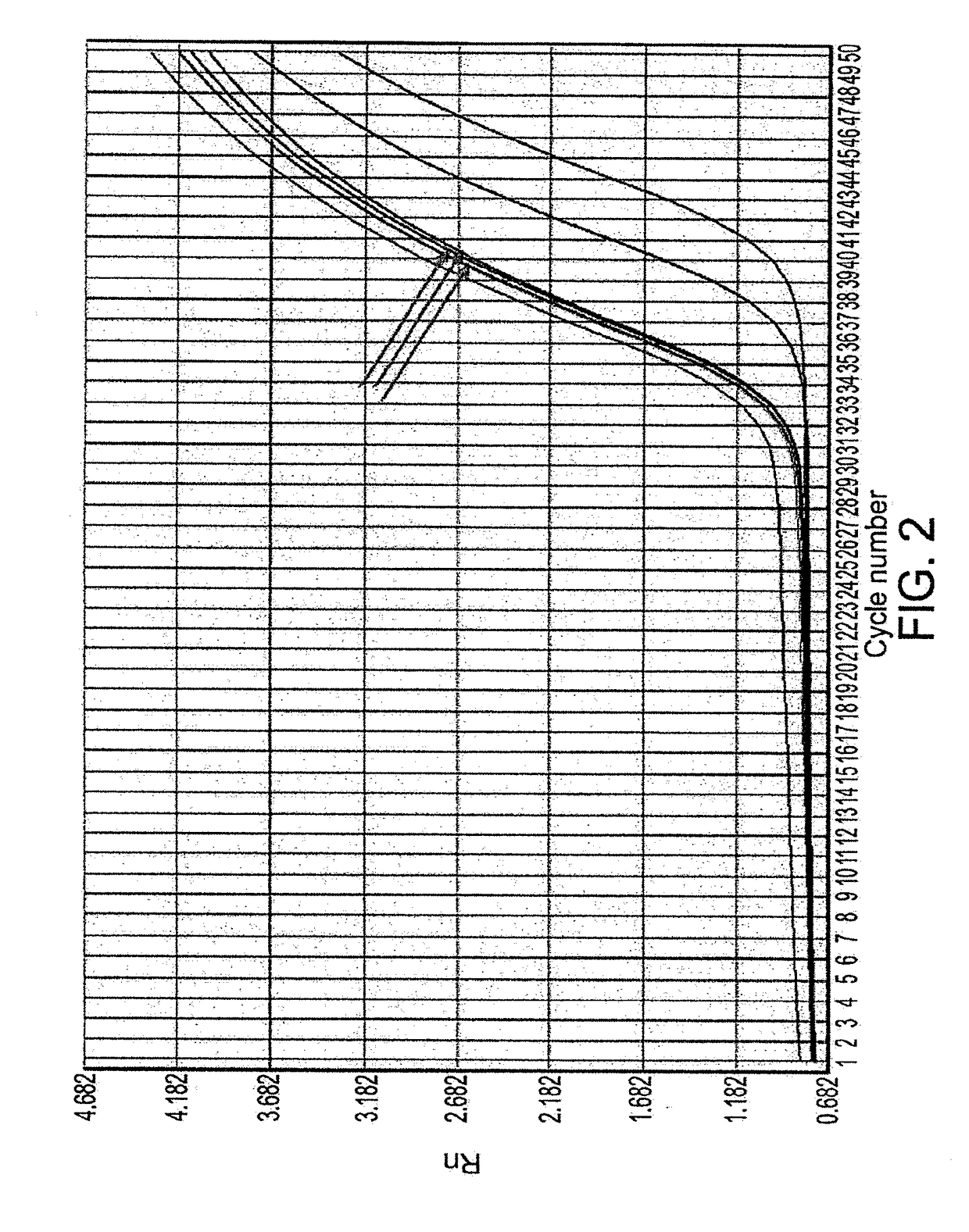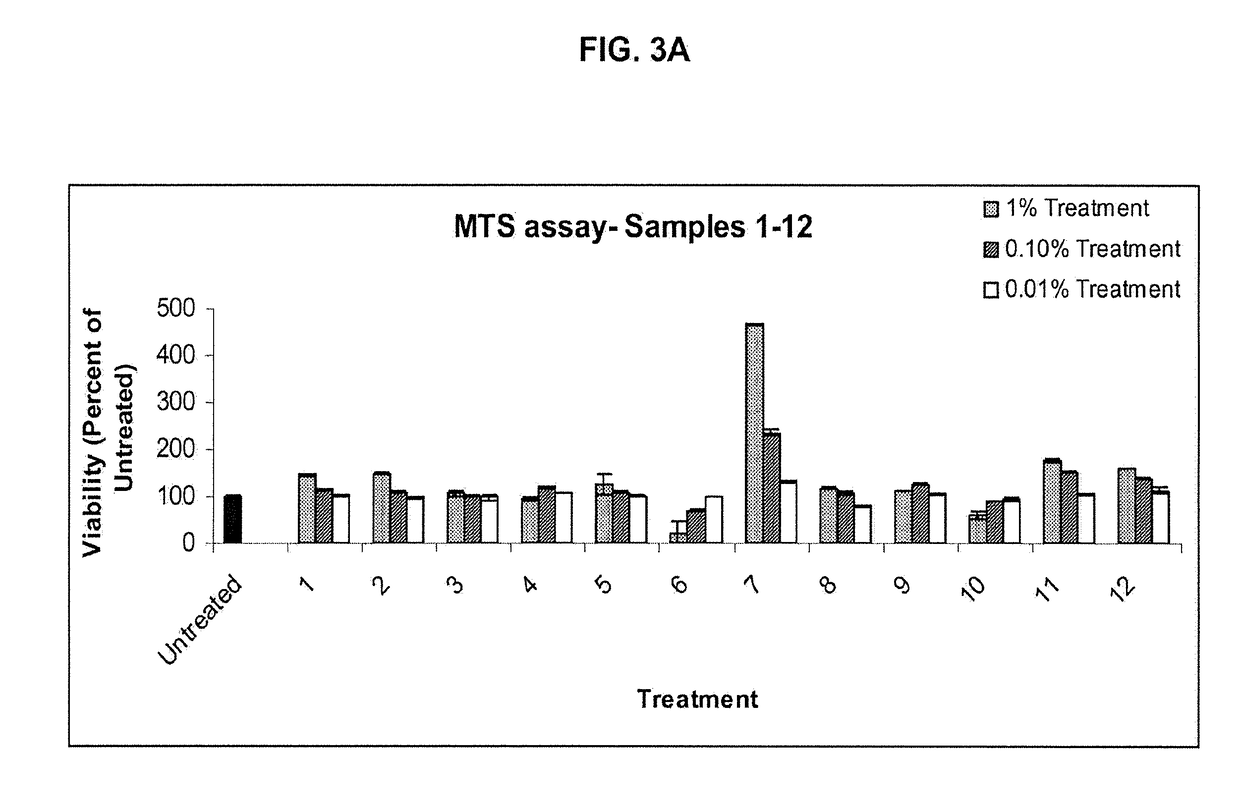Plant extracts for the treatment and prevention of infections
a technology of plant extracts and infections, applied in the field of plant extracts, can solve the problems of severity and duration, patients do not cure skin disorders, and treatment is not recommended for long-term use, and achieve the effects of suppressing the growth of staphylococcus aureus, and promoting the growth of staphylococcus epidermidis
- Summary
- Abstract
- Description
- Claims
- Application Information
AI Technical Summary
Benefits of technology
Problems solved by technology
Method used
Image
Examples
example 1
[0387]Development of an In-Vitro Model Suitable for Evaluation of IL-13 Inhibition
[0388]Materials and Experimental Procedures
Culture of KU812 Cells
[0389]KU812 cells (human basophilic cells, ATCC CRL-2099™) were seeded into culture flasks using RPMI supplemented with 10% fetal bovine serum (FBS), and either 50 μg / ml gentamicin and 50 μg / ml amphotericin B or pen / strep. The seeded cells were incubated at 37±2° C. at 5±1% CO2, with the culture media changed 2-3 times per week until a sufficient number of cells have grown.
[0390]Extracting Process (of Test Material)
[0391]Herbs were chosen according to quality inspection (differentiation and authentication of the raw materials, heavy metal analysis, pesticide residue check and active ingredient content analysis).
[0392]Sliced herbal material was homogenized with ×10 volume of water, and extracted for 2 hours at 80° C. with stirring. The extraction was repeated three times using the same procedure, and the three extractions were mixed togeth...
example 2
Screening Herbal Extracts for Stimulating Activity on Beta-Defensin Expression, Using Epidermal Cells (Keratinocytes: HaCaT Cells)
[0423]Materials and Experimental Procedures
[0424]Keratinocyte Cell Line (HaCaT)
[0425]The keratinocyte cell line was used. HaCaT cells were seeded into culture 75 T-flasks using DMEM (GIBCO) supplemented with 10% FBS (GIBCO) and antibiotics (GIBCO). The cells were incubated at 5% CO2 and 37° C., with the culture media changed when confluence (% ratio of growth surface to plate surface) reached ˜90%. To screen the extracts, extract (0.3 ml) was added to the supernatant of cultured HaCaT cells (˜90 to 95% confluence) and the cells were incubated for 48 h.
[0426]Real-Time PCR Analysis of Human Beta-Defensin 3Expression
[0427]Total RNA Isolation
[0428]Total RNA was isolated with TRIZOL (Invitrogen Life Technologies) according to recommendations of the manufacturer. The RNA was precipitated with ethanol and re-suspended in diethyl pyrocarbonate H2O. The RNA from H...
example 3
Screening Herbal Extracts for IL-13 Inhibition, Using KU812 Basophilic Cells
[0438]Materials and Experimental Procedures
[0439]See Example 1, Hereinabove.
[0440]Results
[0441]MTS Results
[0442]Different herbal extracts (see Table 1, below) were used to establish a range of safe concentrations for the test materials to use in the IL-13 inhibition assay. The results of the MTS assays performed are presented in FIGS. 3A-D. Values represent percentages of viability relative to the control (Untreated). These results were used to establish a range of safe concentrations for the test materials used in the IL-13 inhibition assay. Test material identification is as depicted in Table 1.
TABLE 1Test material identification and analysisResidueTestaftermaterialevapo-Totalidentifi-pHrationmicrobialcationHerb namevalue(%)count1Glycyrrhiza glabra (Licorice)4.0813.702Saposhnikovia divaricata3.2924.403Radix Tripterygii wilfordii3.514.404Cimicifuga racemosa3.59805Celosia argentea4.792.406Coptis Root3.2713.3...
PUM
| Property | Measurement | Unit |
|---|---|---|
| volume | aaaaa | aaaaa |
| concentration | aaaaa | aaaaa |
| concentrations | aaaaa | aaaaa |
Abstract
Description
Claims
Application Information
 Login to View More
Login to View More - R&D
- Intellectual Property
- Life Sciences
- Materials
- Tech Scout
- Unparalleled Data Quality
- Higher Quality Content
- 60% Fewer Hallucinations
Browse by: Latest US Patents, China's latest patents, Technical Efficacy Thesaurus, Application Domain, Technology Topic, Popular Technical Reports.
© 2025 PatSnap. All rights reserved.Legal|Privacy policy|Modern Slavery Act Transparency Statement|Sitemap|About US| Contact US: help@patsnap.com



